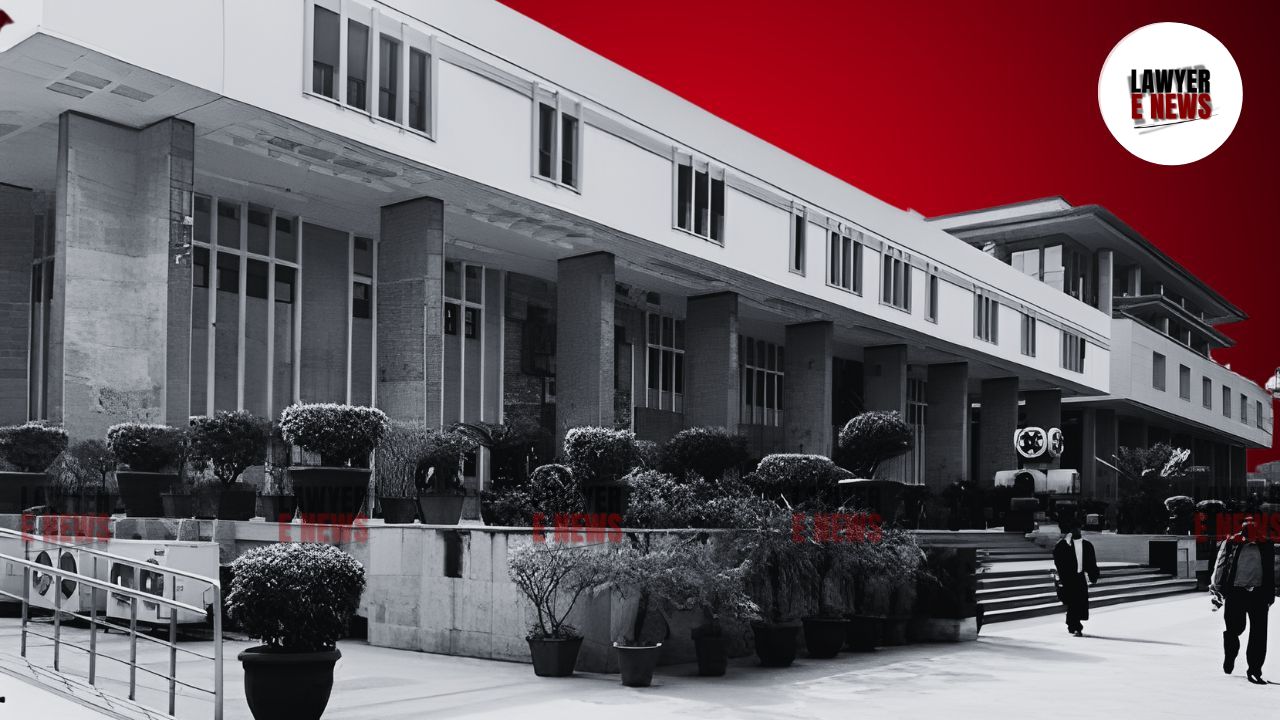-
by Admin
15 February 2026 5:35 AM



"Once Objectivity is Found Lacking, Assessment Cannot Be Retained": Delhi High Court on Confidential Reports. On October 24, 2024, the Delhi High Court, in the case of Gopal Mohan Atri v. Union of India & Ors., delivered a crucial judgment concerning the validity of adverse Confidential Reports (CRs) recorded against an Army Brigadier, Gopal Mohan Atri. The adverse CRs had impacted his eligibility for nomination to the prestigious National Defence College (NDC) and promotion to the rank of Major General. The High Court held that the CR assessments lacked objectivity and consistency, warranting judicial intervention and partial expunction of these reports. This decision sets a significant precedent on the standard of objectivity required in military performance assessments.
High Court Finds Procedural Lapses in Army's Confidential Report Assessments
The petitioner, an officer from the Army Ordnance Corps, challenged the Armed Forces Tribunal's dismissal of his plea to expunge adverse CRs affecting his career progression. Justice Navin Chawla and Justice Shalinder Kaur held that judicial review of CRs is permissible when procedural fairness is compromised, and objectivity is missing in the assessment process. "Once objectivity is found to be lacking in the assessment by the Reviewing Officer, the entire assessment cannot be retained," the court remarked, expunging certain adverse entries in the petitioner’s CRs.
Brigadier Gopal Mohan Atri, a 1990-batch officer of the Army Ordnance Corps, had consistently received "Outstanding" ratings in his CRs until certain adverse entries were made for the periods from April–August 2009, July 2018–June 2019, and July 2020–February 2021. These adverse CRs affected his promotion prospects and his eligibility for advanced training courses like the NDC.
Aggrieved by these CRs, Atri filed a complaint, which was partially allowed by the authorities, but his primary grievances remained unaddressed. The Armed Forces Tribunal upheld the adverse entries, following which Atri approached the Delhi High Court under Article 226 of the Indian Constitution.
Legal Issues at Hand
Validity of Adverse CRs: Whether the CRs were recorded objectively and fairly, particularly concerning the assessments by the Reviewing Officer (RO) and Initiating Officer (IO).
Procedural Fairness in CR Assessments: Whether the assessment process adhered to the guidelines on objectivity and consistency as stipulated by the Army's performance assessment policies.
Right to Fair Consideration for Promotion and NDC Nomination: Whether the adverse CRs, found to be inconsistent and subjective, could lawfully impact the petitioner’s eligibility for promotion and advanced training courses.
Court’s Observations on Objectivity and Procedural Anomalies
The Delhi High Court carefully examined the procedural guidelines for rendering CRs within the military context, emphasizing the importance of objectivity and consistency. The Court observed:
"The purpose of a CR is to objectively assess an officer's performance and potential. When an officer's record indicates a consistent profile of 'Outstanding' ratings, an unexplained downgrading in a CR requires close scrutiny to eliminate subjectivity."
The Court found procedural irregularities in the assessments, specifically in the CRs for July 2018–June 2019 and July 2020–February 2021. In the 2018-2019 period, the RO had downgraded the petitioner to "Above Average" from an "Outstanding" rating without adequate justification. The Court ruled that this inconsistency justified the expunction of the entire assessment by the RO for that period.
Restoration of “Outstanding” Rating for July 2020–February 2021 CR
In the July 2020–February 2021 CR, the IO had given an "Outstanding" rating with a Box Grading of ‘9’ points. However, this rating was later expunged by the Army authorities as "inflationary." The Court disagreed with this expunction, noting that the "Outstanding" rating was in alignment with the petitioner’s previous service record and adequately justified in the pen picture.
The Court restored this CR assessment, stating:
"Where the assessment by the Initiating Officer is justified with a clear pen picture, and the grading is in consonance with the officer’s past performance, it cannot be expunged arbitrarily."
Directions for Reconsideration of Promotion and NDC Nomination
Acknowledging the impact of these adverse CRs on the petitioner’s career, the Court directed the Army to reassess Atri’s eligibility for promotion to Major General and his nomination for the NDC course based on the modified CRs. This reconsideration is to be conducted in light of the expunged and restored CRs, ensuring that Atri receives a fair and objective review of his credentials.
The Delhi High Court's decision underscores the necessity of adherence to objectivity and consistency in the assessment process within the military hierarchy. The ruling reiterates the judiciary's role in ensuring procedural fairness in administrative actions that significantly impact an individual’s career progression.
Key Takeaways from the Judgment
Objectivity in CR Assessments: CR assessments must reflect consistent and objective evaluations, free from arbitrary downgrading.
Judicial Review in Service Matters: Courts have the authority to intervene in military service matters where procedural irregularities compromise fairness.
Impact on Military Promotions: Adverse CRs with procedural defects cannot form the basis for denying promotion or advanced training opportunities.
Date of Decision: October 24, 2024
Gopal Mohan Atri v. Union of India & Ors.
